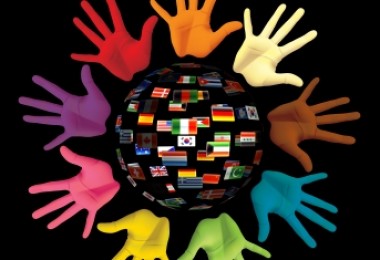Translation Romani has decided to maintain use of the word Romani in all language versions of this website, inclusively and in reference both to the language and people of all the diverse ethnic communities throughout the world, i.e. Roma, Sinti, Manuš, Calé, Romanichal, Kalé, and many others. Please read the important notes from our translators for explanations and other translations currently in use locally, nationally or regionally.
Close this box.
A standard language assumes a particular status for one of the variations of a language, usually a dialect. It tends to be widely prescribed through education and dictionaries, grammar books and publications, and is often associated with social or political prestige. For many languages of the world, it is the creation of modern nation-states that typically confers official status and recognition to one or more languages existing within national borders. Those languages then become standard through government endorsement, institutional prescription and educational curricula. Romani speakers, however, reside in many different countries and regions of the world, and do not have an independent territory or nation-state that could collectively provide them with the infrastructure and means to financially, legally and politically support their language and culture. As such, some advocate classifying and supporting the language as a "non-territorial" one, for example through the European Charter for Regional or Minority Languages and the Frame Statute of the Romani People in the European Union. Others amass support by consensus through international and local Romani associations and organizations. The standardization of Romani thus transpires differently, under diverse conditions. Codification, normalization and standardization processes, all part of the usual initiatives in language planning, are still underway. At the same time, in practice, dialect speakers communicate with one another by calibrating and adjusting to diverse linguistic and situational contexts and conditions, sometimes through repertoires of other languages.
There are unique challenges associated with the standardization of Romani grammar, lexicon and writing script, all of which impact the emergence of a standard language. These challenges find their roots in history. Historical linguistics has in fact determined that Romani is a language over 1000 years old. Romani peoples share a common linguistic, cultural heritage, but one that has diversified remarkably upon contact with other populations over time. Almost 80 dialects share 700-900 core lexical items of Indian and pre-European origin. The greatest variation in vocabulary among dialects is found in the lexical items acquired after migrations began into Europe (14th-15th c.) Depending on the degree of contact with non-Romani languages, these lexical items in the diverse dialects can sometimes be mutually unintelligible. Some modern initiatives advocate coining new terminology based on ancestral Indian languages. Others attempt to group local dialects into a broader regional one, for example, for use in the Balkans. Still others build on a major dialect like Kalderaš and incorporate international vocabulary often rooted in English language lexicon. Adopting a standard alphabet is challenging in part due to the fact that Romani communities across the globe naturally make use of the alphabets and scripts native to the languages used in their local regions, through which they phonetically transliterate. Many educated Romani currently communicate, write emails and participate in online forums through spelling based on a Latin alphabet, in many cases influenced by global English. Others put into practice the Courthiade Unification Model, which seeks to accommodate all major dialectal variation through a "meta-phonological" alphabet.
References:
Courthiade, Marcel and Alain Reyniers (eds), "Langue et culture: approche linguistique", Études tsiganes, Vol. 2, No. 22, Paris: Études tsiganes, 2005.
Hancock, Ian (1995), A Handbook of Vlax Romani, Columbus: Slavica Publishers, Inc.
Hancock, Ian, "Issues in the Standardization of the Romani Language: An overview and some recommendations", RADOC, retrieved on 4 Sept 2011 at http://www.radoc.net/radoc.php?doc=art_c_language_recommendations&lang=en&articles=true
Hancock, Ian, "Language Corpus and Language Politics: The Case of the Standardization of Romani", RADOC, retrieved on 4 Sept 2011 at http://www.radoc.net/radoc.php?doc=art_c_language_standardization&lang=en&articles=true
Karanth, Dileep (ed), Danger! Educated Gypsy. Selected Essays. Ian Hancock, Hertfordshire: University of Hertfordshire Press, 2010.
Matras, Yaron (2002), Romani. A Linguistic Introduction, Cambridge: Cambridge University Press.

Kai? (Kalderash)
Kaj? (Gurbeti)
Kaj? (Lovari)
Kaj? (Xoraxane)


